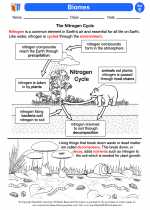Hypothalamus
The hypothalamus is a small but crucial part of the brain that plays a significant role in many important functions, including regulation of body temperature, hunger, thirst, sleep, and emotional responses. It is located below the thalamus and forms the ventral part of the diencephalon.
Anatomy of the Hypothalamus
The hypothalamus is composed of several nuclei, each with specific functions. Some of the major nuclei include the paraventricular nucleus, supraoptic nucleus, and the arcuate nucleus. These nuclei are responsible for synthesizing and releasing various hormones and regulating different bodily functions.
Functions of the Hypothalamus
The hypothalamus has a wide range of functions, including:
- Regulation of Body Temperature: The hypothalamus helps maintain a stable body temperature by triggering responses such as shivering or sweating.
- Control of Hunger and Thirst: It regulates feelings of hunger and thirst, influencing eating and drinking behaviors.
- Regulation of Sleep and Circadian Rhythms: The hypothalamus is involved in controlling the sleep-wake cycle and other circadian rhythms.
- Emotional Responses: It plays a role in emotional and behavioral responses, including fear, pleasure, and aggression.
- Endocrine Function: The hypothalamus is a key player in the endocrine system, controlling the release of hormones from the pituitary gland.
Study Guide
To understand the hypothalamus better, it's important to focus on the following key points:
- Learn the location of the hypothalamus in the brain and its neighboring structures.
- Identify and understand the functions of the major nuclei within the hypothalamus.
- Explore the role of the hypothalamus in regulating body temperature, hunger, thirst, sleep, and emotional responses.
- Study the connections between the hypothalamus and the endocrine system, particularly the pituitary gland.
- Consider the impact of hypothalamic dysfunction on overall health and well-being.
By delving into these aspects, you can gain a comprehensive understanding of the hypothalamus and its vital functions in the body.
.◂Science Worksheets and Study Guides Fifth Grade. Plant Responses and Adaptations

 Activity Lesson
Activity Lesson
 Worksheet/Answer key
Worksheet/Answer key
 Worksheet/Answer key
Worksheet/Answer key
 Worksheet/Answer key
Worksheet/Answer key
 Vocabulary/Answer key
Vocabulary/Answer key
 Vocabulary/Answer key
Vocabulary/Answer key
